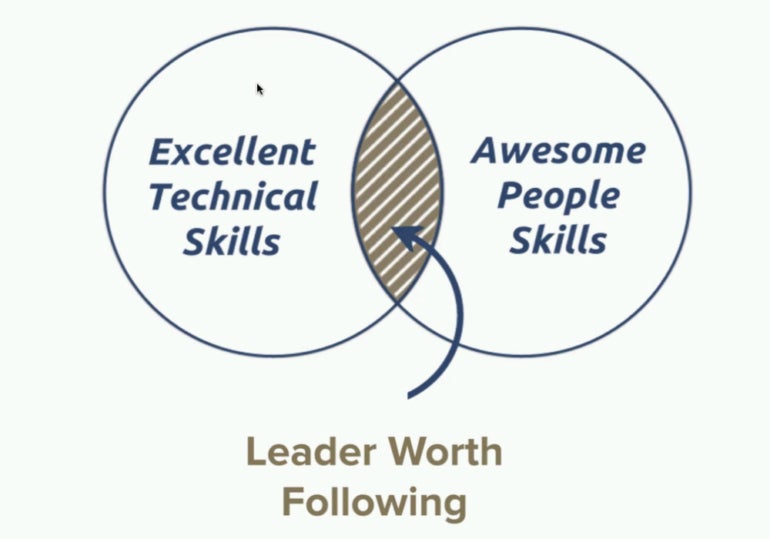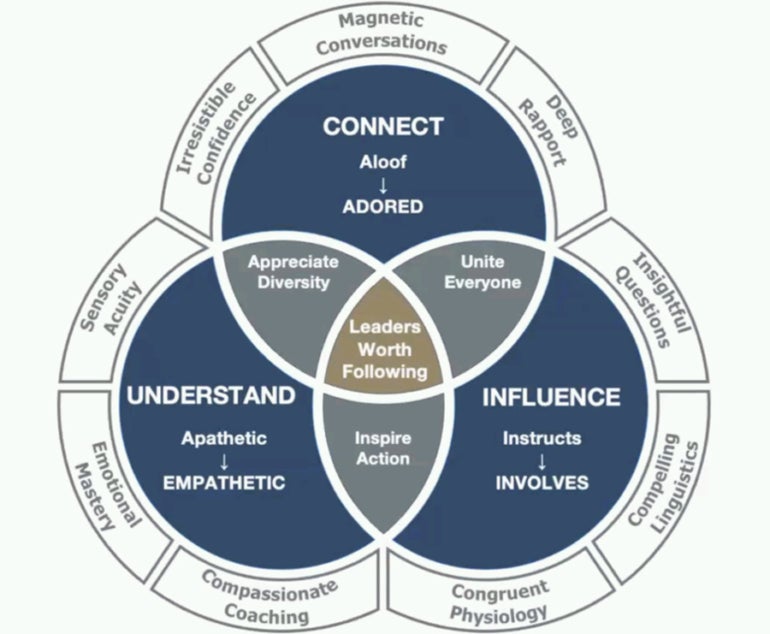Some Australian IT professionals with aspirations of taking on leadership roles are reaching a “technical ceiling” within their organisations, but there are ways they can also become strong people leaders, according to an innovative Australia-based leadership psychologist.
Duncan Fish, head coach and founder of Australian executive coaching company The Engaging Executive, said technical professionals at middle management level often fail to be promoted or end up struggling in senior leadership roles due to underdeveloped interpersonal skills. .
Fish argues that structured insights from psychology, combined with intentional practice of these skills in the workplace, can help more Australian IT professionals who have the motivation to learn become trusted, empathetic and influential leaders within their organizations.
IT professionals struggle with the “technical ceiling” problem
Duncan Fish has worked with a variety of middle and senior level managers in the Australian market. He said the IT executives he sees, like other technically oriented professionals, are often rewarded in school, college and early in their careers for their technical skills and knowledge.
“They've continually been reinforced on that technical path and rewarded for their technical prowess,” Fish said in an interview with TechRepublic in Australia.
At about the middle management level, perhaps after a couple of promotions, Fish said you reach a transition point. While they still need to be experts in their field, they find that going deeper and deeper into their technical skill area will not make them progress further.
This transition point can become a “technical ceiling” for potential leaders. While there are “unicorns” who make the transition and naturally blossom into people leaders, very often it is something that needs to be developed in technical professionals in order for them to thrive.
Two things happen to IT professionals at the technical ceiling
IT professionals who reach the technical ceiling typically face one of two problems:
- They find positions in their careers and don't get promoted. due to a lack of what can often be called leadership, interpersonal or stakeholder management skills.
- They are overpromotedwhich can leave them struggling in higher roles where they don't understand the new skills they need to develop to continue their success.
The barrier of the technical ceiling could become increasingly stronger. Research published by CSIRO, which analyzed 2 million online job ads in Australia between 2015 and 2022, found an increase in demand for employees with soft skills following the COVID-19 pandemic.
The accelerated demand for soft skills was mainly driven by an increase in job postings seeking communication and collaboration skills, according to lead author and CSIRO scientist David Evans, and these skills were in demand even for remote jobs.
SEE: The three pillars of a successful career in technology leadership.
How KPMG's Potential Stars Failed at the Partnership Finish Line
Fish first noticed the technical ceiling issue while working with KPMG in the UK, where he helped select potential partners. The final stage involved a three-day assessment with mock business, staff and client meetings, where softer leadership skills were assessed (Figure A).

“They had already demonstrated their technological skills and business acumen to get to that stage,” Fish said. “This is where I saw people succeed or fail… There was only a small percentage that could really muster those softer leadership skills.”
IT professionals must focus on connection, understanding and influence.
IT professionals with leadership transition issues essentially need to start developing their interpersonal skills.
“They need to be able to connect, understand and influence other people on non-technical issues, because there are a lot of non-technical people they have to deal with.”
Psychological science has much to offer these aspiring leaders. Fish, whose 10-person team based in Australia includes psychologists from different disciplines, compares his model to “mixed martial arts.” The Engaging Executive draws on organizational, developmental, social, clinical and positive psychology, as well as neurolinguistic programming to develop and hone holistic people skills in three key areas (Figure B).

Connect with teams and business stakeholders to build trust
Although Fish cautions against generalizing, he said it's common for technical professionals to tend toward introversion. They may be more comfortable dealing with computers than people. Logic, data, facts, and processes can become a “safe space” and can often seem distant.
Connection skills help these people or similar people develop deeper, broader relationships across silos and different types of people. This includes developing confidence to walk into any room and techniques for managing body language, voice, eye contact and facial expression.
“We also help them have magnetic conversations, whether it's telling stories, using a little humor, or just making a two-way conversation flow effortlessly,” Fish said. “Because this stage is about building trust: people have to trust you or feel comfortable with you so that you can get somewhere else.”
Better understand people by moving from “apathy” to “empathy”
Technical professionals typically have good cognitive understanding, but they often need to learn to understand people better, Fish said. They may see people as “unpredictable”; Team members' emotions or ups and downs may seem like a “computer error” rather than simply human.
“When you lead other people or have to deal with stakeholders who have different ways of being, then you need to be able to understand, so it's about developing empathy. “It's about developing tolerance for other people, developing emotional intelligence,” she said.
Influence outcomes by engaging people rather than instructing them.
Without first being able to connect with and understand other stakeholders, executives attempting to exert influence to achieve desired outcomes can “come across as manipulative.”
Technical professionals gain influence by moving from “instructing” to engaging people. This can be achieved through things like asking insightful questions that tap into people's hopes, needs and fears and compelling linguistics that “go from the technical to the generic,” Fish said.
Results show that technical professionals can learn interpersonal skills
Technical professionals can be trained to overcome the technical ceiling. An independent internal measurement conducted by a top-tier Australian public sector client working with The Engaging Executive measured significant improvements among employees sent through the program. Participants showed between 14% and 83% improvement in 15 target behaviors over six months, based on results verified by both participants and their direct managers.
SEE: Six product leadership styles and how to use them effectively.
Results included 100% of participants appearing approachable and friendly to their coworkers (up 14%) and a 34% improvement in their ability to effectively manage team behavior and performance. There was an 83% improvement in influence by “asking the right questions and splitting up and down,” referring to moving from the specific to the general.
What IT professionals must do to overcome the technical ceiling
Australian IT professionals can successfully break through the technical ceiling and reach leadership roles. However, Fish said, “Like everything in life, if there is no motivation or willingness to learn, then it can be difficult. It has to start there; It has to start with desire.”
Beyond basic motivation, Fish has three recommendations to help develop interpersonal skills.
Find an expert guide who can support the development of interpersonal skills
Technical IT professionals are unlikely to “magically” learn the soft skills they need to lead on their own. Fish said the most effective path is to connect with an expert guide.
“You need to find someone, whoever it is, who is better than you at the skills you want to learn,” Fish said.
Follow a proven process that breaks learning into stages
Technical professionals often benefit from following a more structured and tested process, primarily because it allows them to break down learning new skills into small steps or stages.
“These professionals can be logical, objective and data-driven, so often interpersonal skills can seem like something mystical and they don't know where to start,” Fish said. “It's absolutely key, whether they read self-help books, go to courses or find a coach, to be able to break it down into stages.”
Commit to a process of deliberate practice in a work environment.
IT professionals will incorporate people skills more effectively if they deliberately break them down and practice each element in practical scenarios. An example would be deciding to practice a particular influencing skill and then including a particular type of question in a conversation.
Fish said Professor K. Anderson Ericsson's study of prodigies, popularized by Malcolm Gladwell in his book Atypical valuesHe showed that becoming an expert at something is not just about putting in 10,000 hours, but about breaking things down into nanoparts and practicing each one carefully.
“This is the difference between people who learn well and those who don't; If people take something they hear on a podcast or see on YouTube and put it into practice today or not just today but throughout the week, then they will see a difference. It’s about doing,” Fish said.











